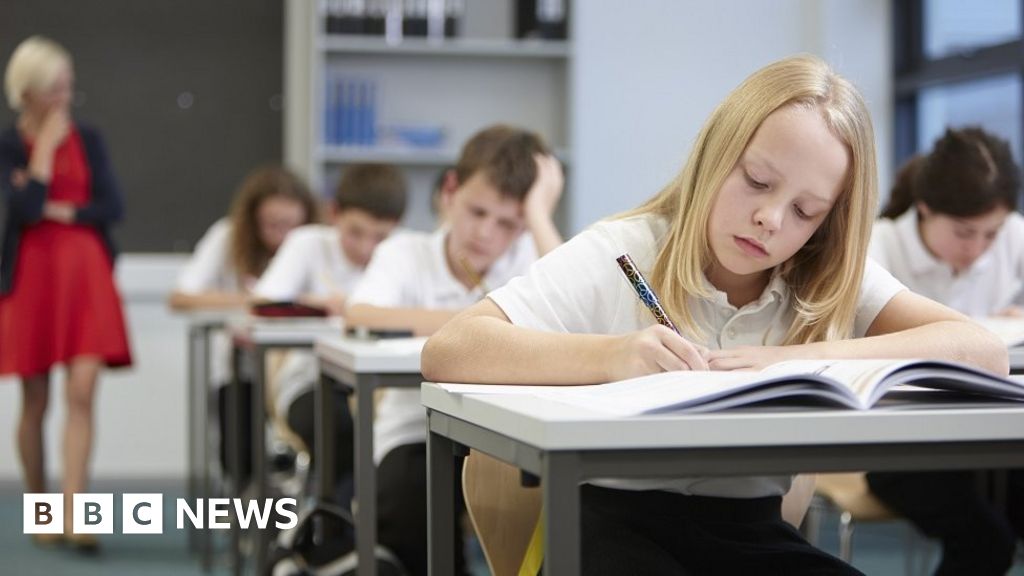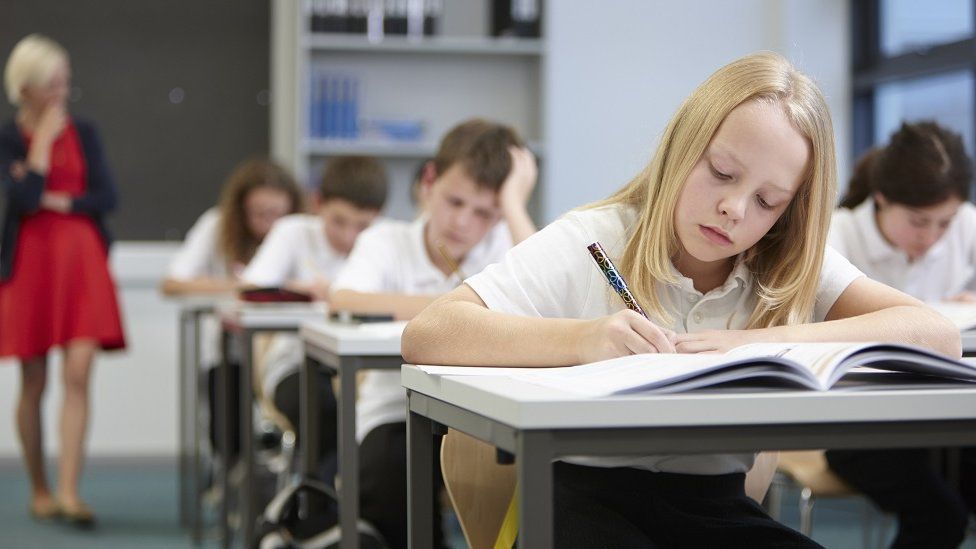 Getty
GettyIn education, it was a case of back to the (pre-pandemic) future in 2022.
As Covid and accompanying restrictions thankfully receded, concerns about funding for schools and the wider education system came to the fore again.
There was extra money for education in the secretary of state’s November budget, but not enough to meet increasing demands or costs.
As 2022 ends, the Education Authority (EA) is faced with finding savings of about £100m.
As some of its biggest spending is on support for pupils with special educational needs (SEN), school transport, meals and maintenance, that will not be straightforward.
The EA also pays for youth services across Northern Ireland, and many centres are already facing cuts that could reduce staff and opening hours.

There is also industrial unrest among teachers, with long-running stalemate over a pay deal for 2021 to 2023, which is likely to persist well into the new year.
Pre-schools have also raised concerns about sustainability.
Education, though, featured heavily during the last days of Stormont before the executive collapsed.
A private members bill brought by the Alliance MLA Kellie Armstrong requires the Department of Education (DE) to give more support to integrated education.
It means that the Department of Education has to increase the number of integrated school places and set targets for the number of children being educated in them.
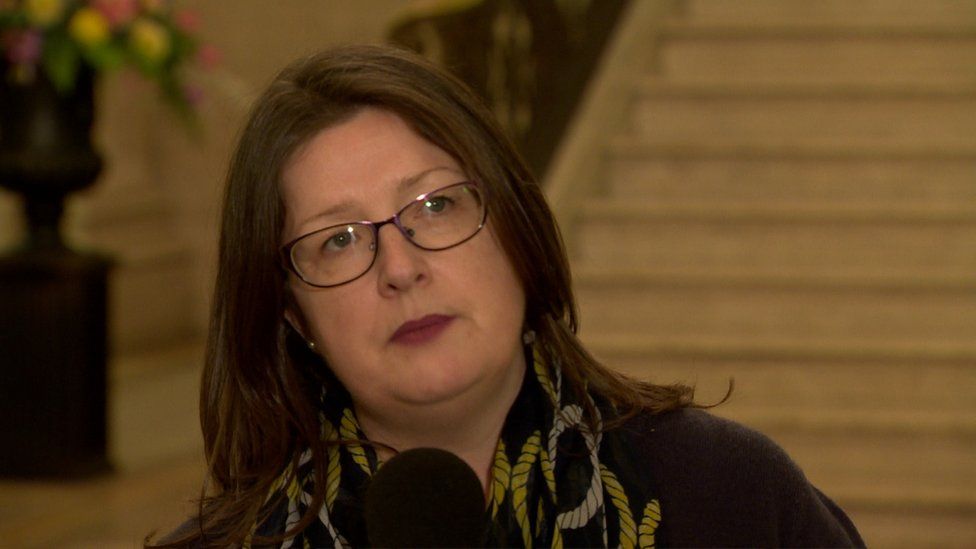
There have been concerns from some schools and churches that the new law will put integrated schools first in the queue for funding and new buildings.
But others, including Irish President Michael D Higgins, have said there is an “urgent need” for more integrated schools.
So there will be plenty of attention on what practical changes the law brings.
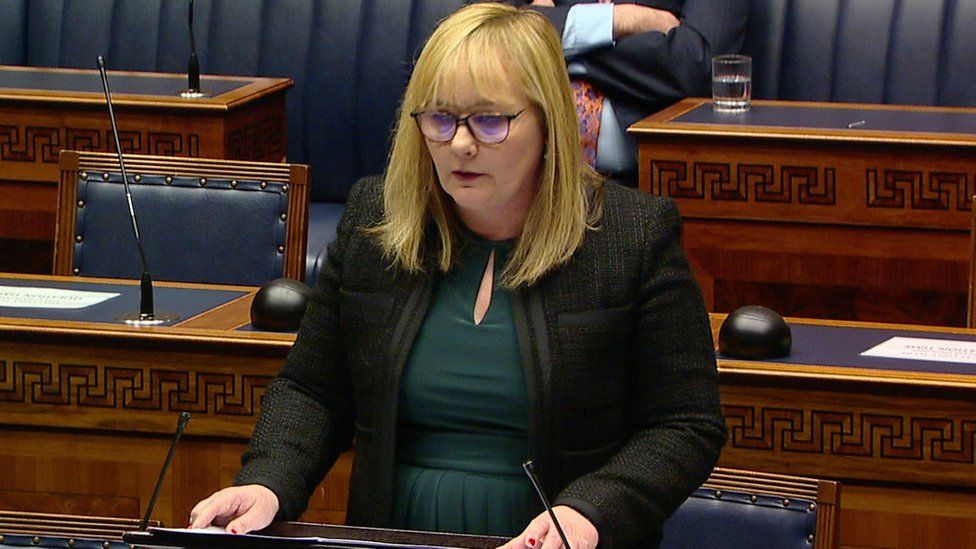
MLAs also passed legislation allowing some children to delay starting school and removing the exemption of teachers in Northern Ireland from fair employment laws.
The DUP’s Michelle McIlveen remained education minister until the end of October, but as the year ends the department’s permanent secretary Mark Browne is a man with a full in-tray.
Who knows how long it will be before there is another education minister?
And which party will take it, given education has become one of the most challenging Stormont departments?
The results of a large-scale independent review of Northern Ireland’s education system are due to be published in spring 2023, but will there be a minister to receive it and will any of its recommendations be acted on?
- Basic funding for NI schools is cut after budget
- Who is running Northern Ireland?
A Stormont strategy aiming to reshape 14-19 education was published in June.
It called for “parity of esteem” between academic and more technical or vocational qualifications for young people and said there was a need for “a more joined-up approach” to post-16 education and training to meet the needs of both the young people and the economy.
The report also said careers advice in schools did not always make young people fully aware of the range of options open to them, including courses in further education (FE) colleges.
Highs among lows
It should never be forgotten, though, that schools across Northern Ireland do a lot of good work in and out of the classroom for 340,000 children and young people.
For example, Limavady High was crowned UK Secondary School of the year 2022 in the Pearson Teaching Awards.
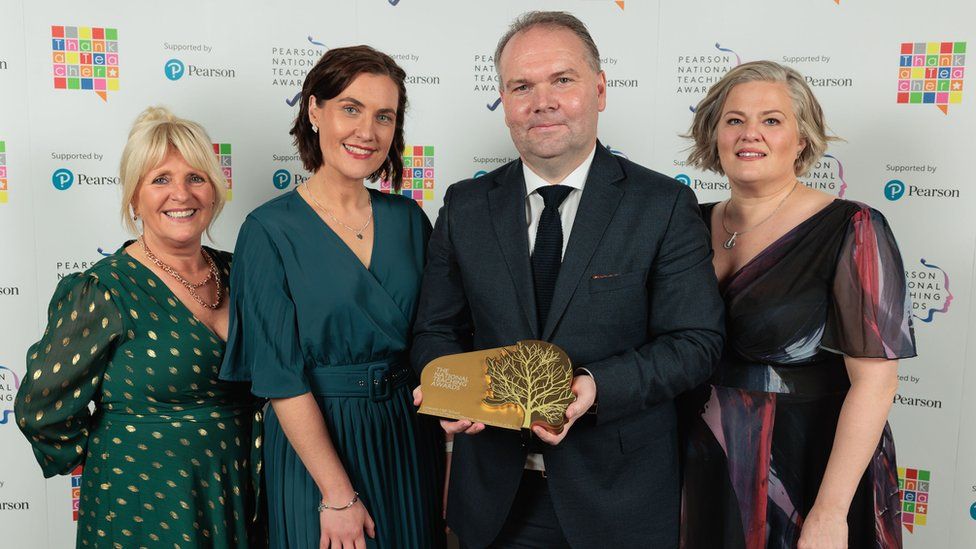
Some schools also responded to the rising cost of living by providing hot breakfasts and lunches to all pupils to ease pressure on families.
As formal exams returned for the first time since 2019, Northern Irish students again got strong A-Level and GCSE results.
They were down on the two years when schools calculated grades for pupils, but still much higher than before the pandemic.
It will always be controversial, but 2022 is also likely to be the last year of two separate transfer tests – a system in place since the state run 11+ ended in 2008.
Grammars in Northern Ireland have signed up to a new common test to take place in November 2023.

In Higher and Further Education (FE), finance was also a major factor.
At the start of 2022, the Department for the Economy (DfE) revealed it had modelled cutting university places and increasing tuition fees by almost 60% to save money.
The department’s 2022/23 budget was subsequently cut by the Northern Ireland secretary in November.
As about 60% of DfE’s budget is spent on education and skills development, a further cut in 2023 could mean hard decisions for universities and FE Colleges.
Queen’s University, for instance, has warned that it could cut hundreds of places for NI students if its funding from Stormont is reduced.
Both Queen’s and Ulster University (UU) have said they will need an extra 5,000 places for local students by 2030, due to a projected rise in the number of 18 and 19 year olds.
But that will need more money – either from rising tuition fees or government grants.
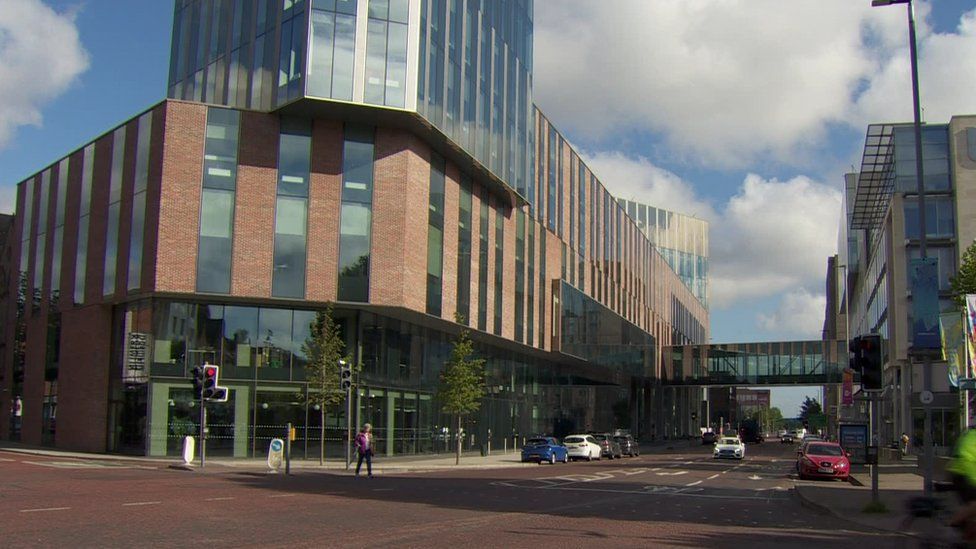
UU finally opened the doors of its extensive new campus close to Belfast city centre after a number of delays.
Almost all UU students and staff from the Jordanstown campus have moved to the Belfast building, which is opposite the existing former art college building.
There are hopes that the campus will be the catalyst for a wider regeneration of Belfast city centre.
However, just after the start of the World Cup, UU’s relationship with a partner university in Qatar prompted some criticism given the country’s human rights record.
Looking ahead, in all sectors of education, 2023 is again unlikely to be quiet.
-
Basic funding for NI schools is cut after budget
-
5 December
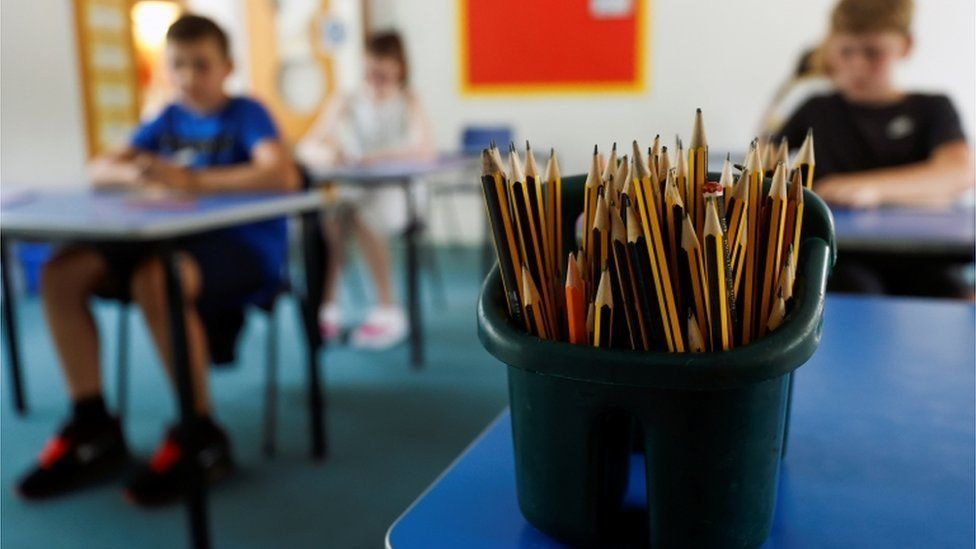
-
-
Teaching unions brand pay offer inadequate
-
16 February
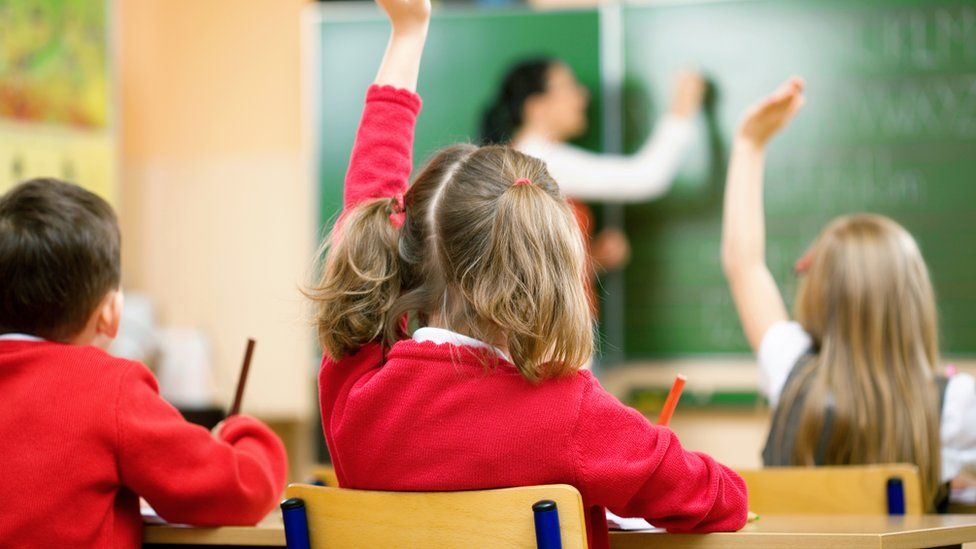
-
-
Pre-school ‘at a loss’ over rising costs
-
22 November
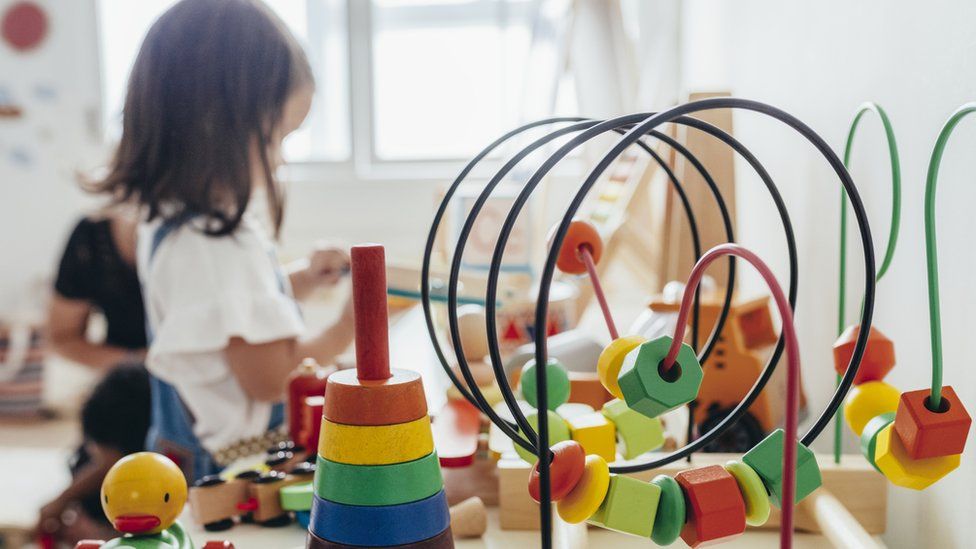
-
-
Irish president criticises segregated education
-
17 February
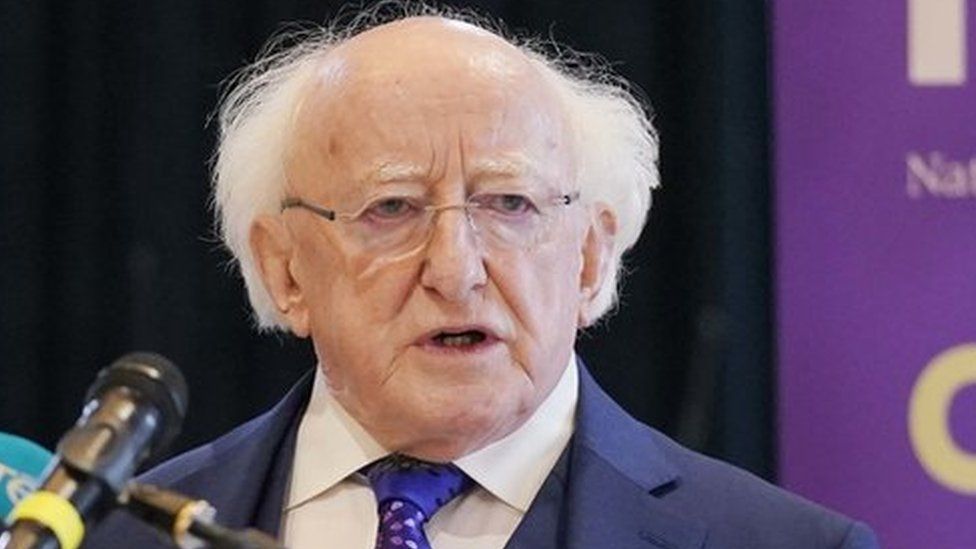
-
-
Higher fees and fewer university places considered
-
13 January
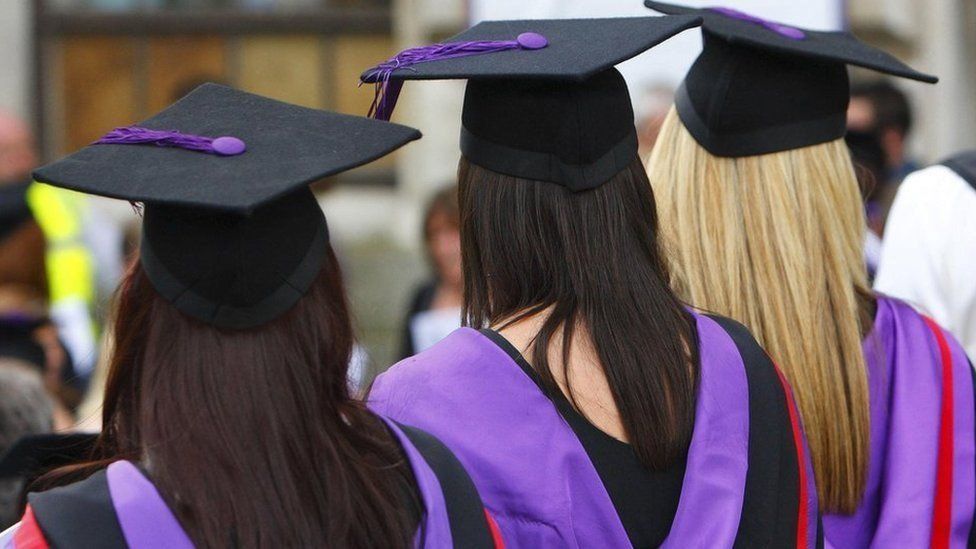
-
